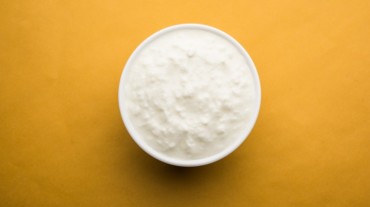
Ever heard someone go gaga over Greek yogurt? They’ll talk about its awesomeness and enumerate all the benefits! But, that doesn’t mean our good old dahi or curd is no good. While it is easy to get confused between the two, there is a world of difference between normal curd and Greek yogurt.
That’s why today we’re going to unravel this difference so that you can make an informed decision. So, shall we?
Dahi and Greek yogurt: What’s the difference between the two?
Dahi, or curd, is made with lactobacillus. Although the same process of fermentation is followed with it comes to Greek yogurt, another bacteria is added in it called streptococcus thermophilus apart from lactobacillus.
“Just because we call it Greek doesn’t mean that it’s great. There is seriously no point for all that fascination because, more or less, both of them do the same thing since both are rich in probiotics. But, if you talk about protein, then greek yogurt has an upper hand”, says clinical nutritionist, Lovneet Batra.

She also suggests that Greek yogurt is thicker in consistency with plain yogurt coming with the advantage of being low in calorie count.
“But you should restrain from eating those lip-tickling flavours and sugar-based yogurts as they are useless when it comes to weight loss”, she says.
But which one is better?
When it comes to regular homemade dahi, it has a lot of good fats and probiotics. Plus, homemade curd is free from preservatives which are no good.
On the other hand, Green yogurt has extra protein. The protein is also there in your ghar ka dahi, but in lesser quantity. But, if you are lactose intolerant then Greek yogurt is your go-to product.

“The biggest misconception that people have is that Greek yogurt is healthier. In fact, a bowl full of dahi in the afternoon is as good as your fancy yogurt. Even if you want to eat Greek yogurt, make sure you’re consuming the plain variant. You can eat homemade curd if you’re trying to lose weight,” she concluded.
So ladies, no need to go fancy because your ghar ka dahi can actually be better than packaged Greek yogurt to begin with.
Select Topics of your interest and let us customize your feed.
PERSONALISE NOWGet Latest Updates on Healthy Eating, Nutrition, Recipes, Superfoods